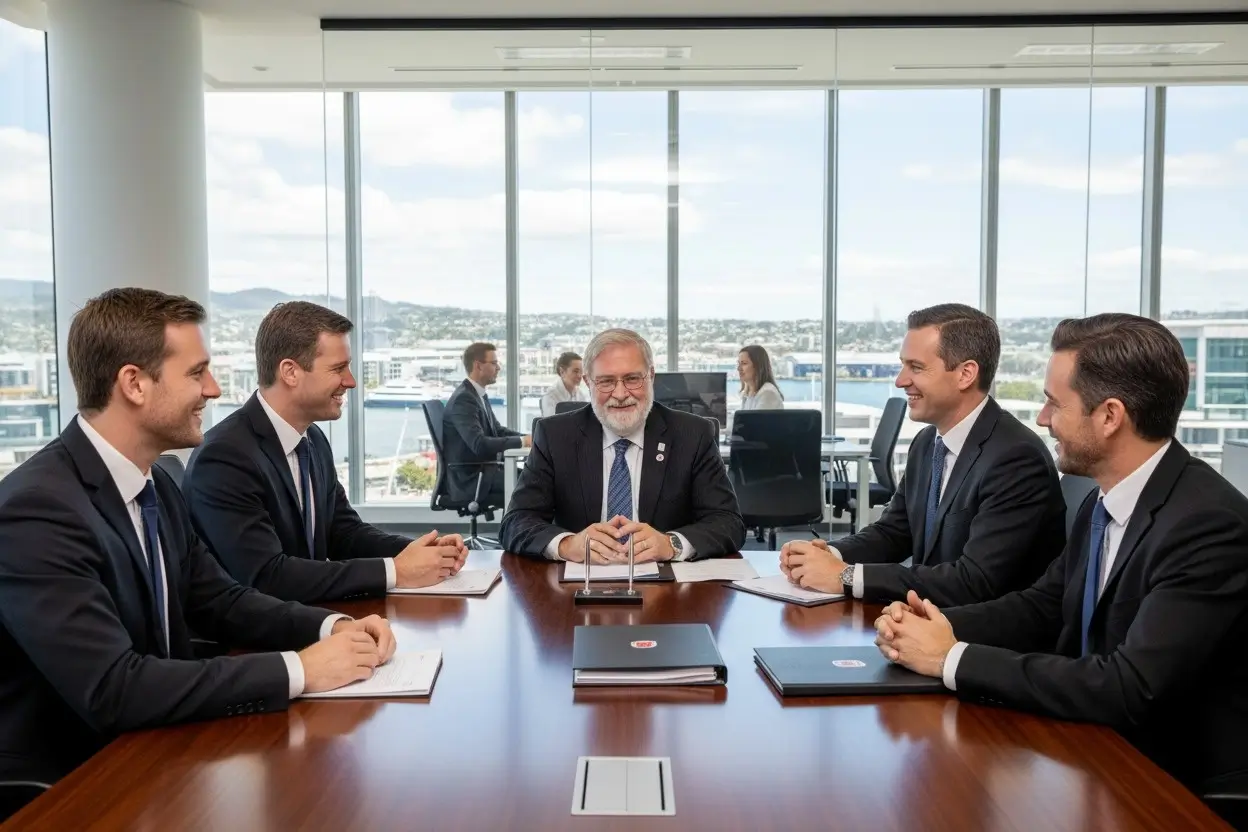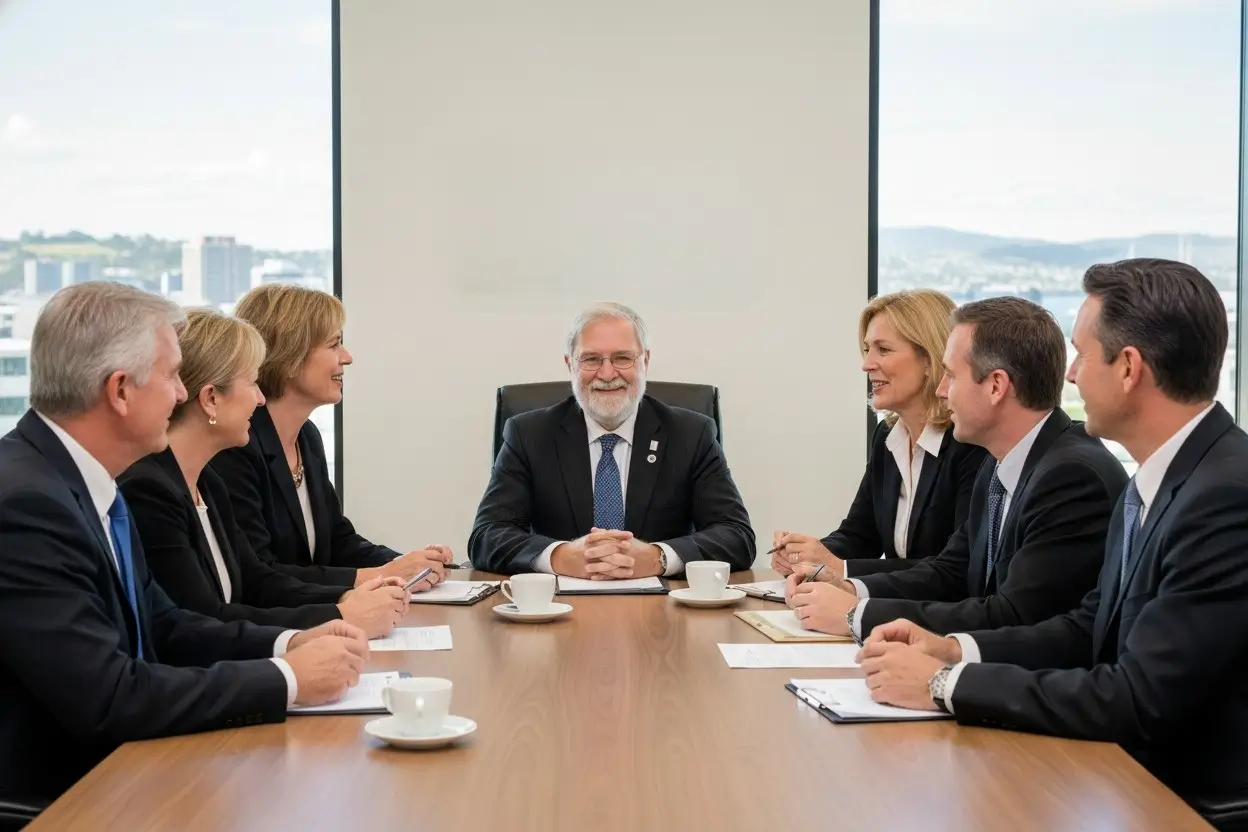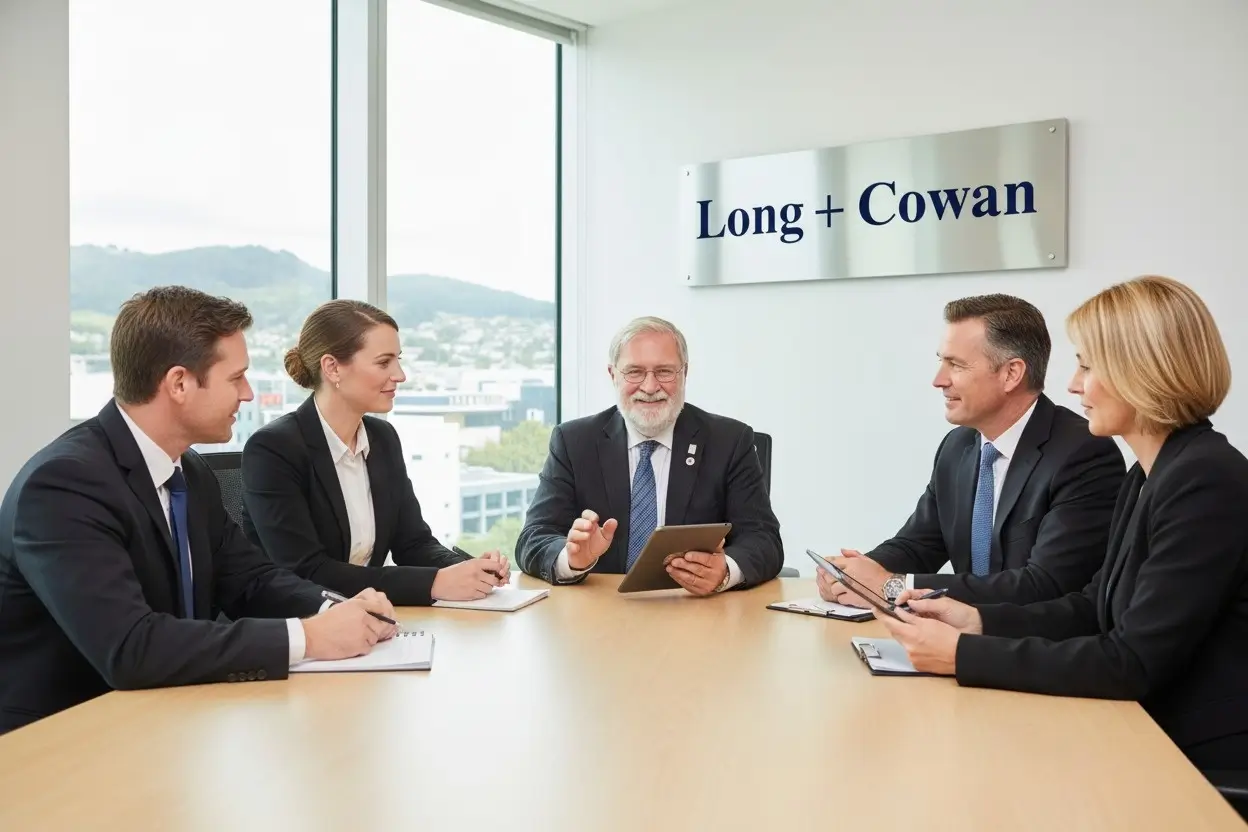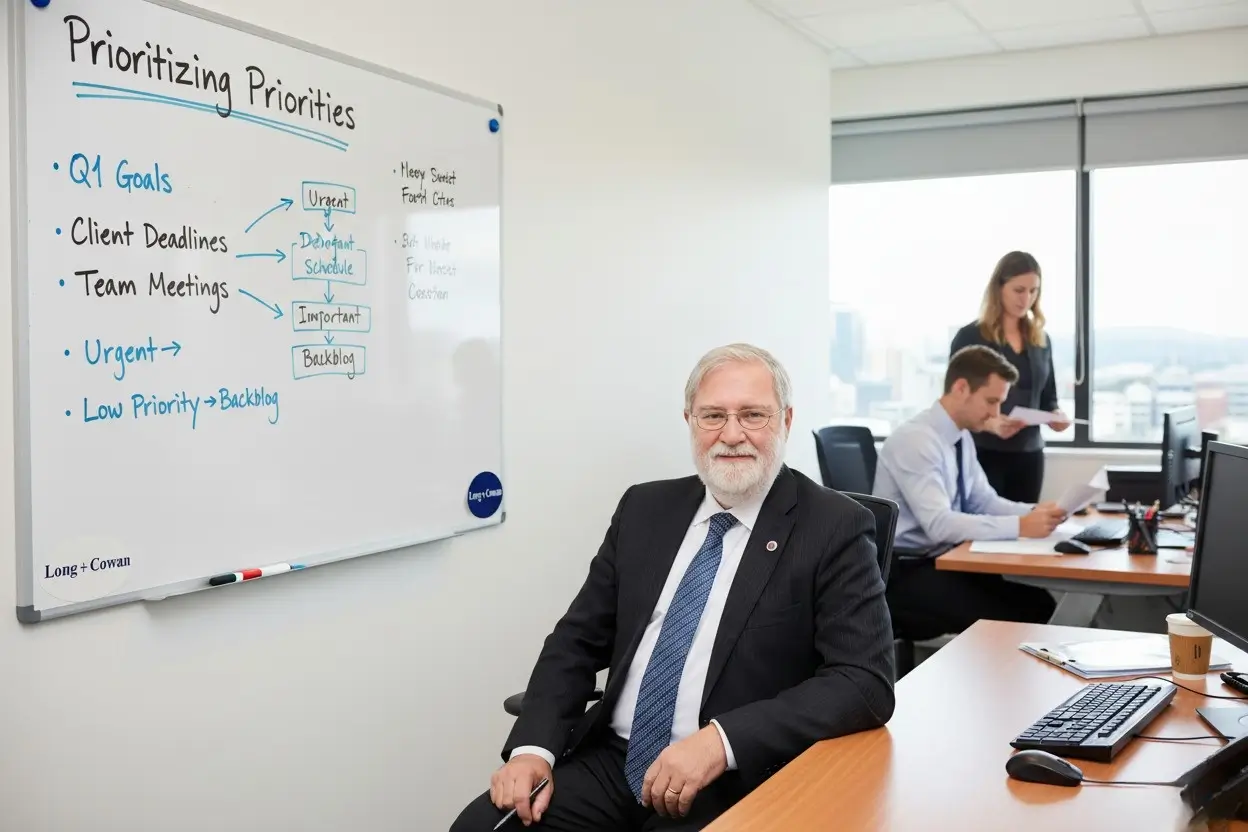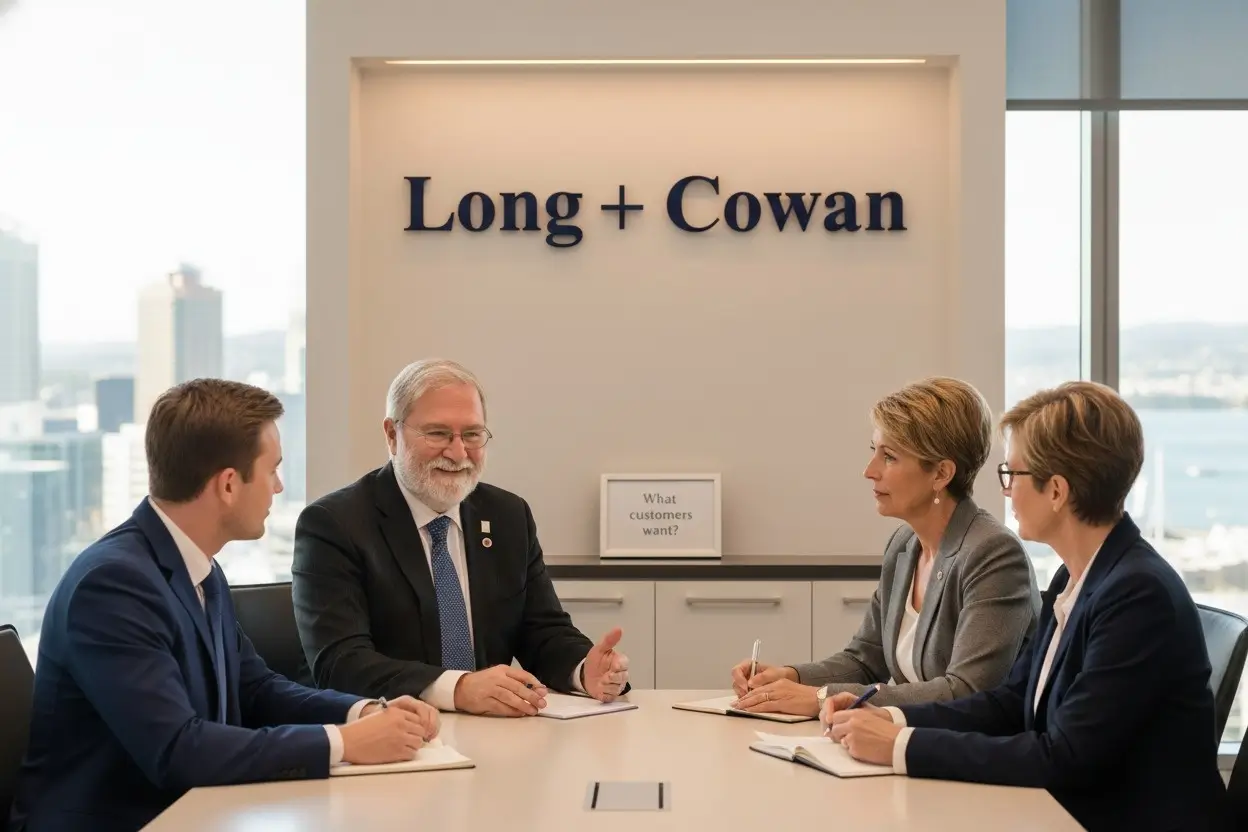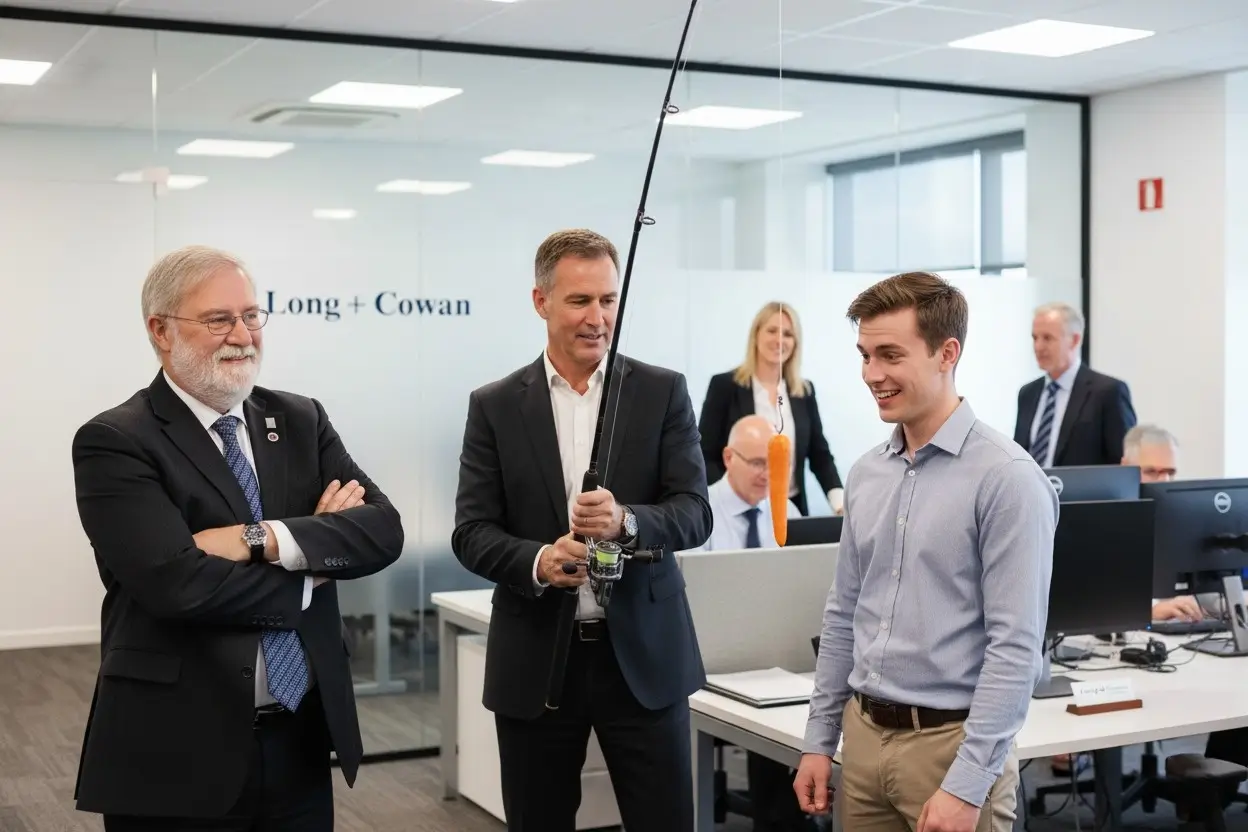Every successful business begins with a clear plan. At Long + Cowan, we help Wellington companies use structured planning and goal setting to stay focused and accountable. Without direction, effort becomes scattered and results inconsistent.
Good planning provides a roadmap; goals provide motivation. Together, they transform ideas into results. Businesses that plan systematically make better decisions and respond faster to change.
Linking Goals to Business Vision
Goals are meaningful only when they align with your long-term vision. Defining what success looks like ensures every target contributes to that bigger picture. Whether your objective is expansion, profitability, or efficiency, connecting daily actions to overall strategy keeps progress measurable.
We guide clients through this process by helping them translate broad ambitions into specific, trackable outcomes. Each goal becomes a step toward achieving the organisation’s wider mission.
The Role of Strategic Planning
Strategic planning sets direction for the next one to five years. It involves assessing current performance, market position, and available resources. This process ensures that growth is deliberate rather than reactive.
Creating a written plan clarifies priorities, timelines, and responsibilities. Reviewing it regularly ensures flexibility while maintaining structure. A living strategy allows Wellington businesses to adapt without losing purpose.
Setting SMART Goals
SMART goals are Specific, Measurable, Achievable, Relevant, and Time-bound. This framework prevents vague statements such as “improve performance” and replaces them with practical targets like “increase client retention by 10% within twelve months.”
Defining measurable goals turns planning into a management tool. Tracking progress against clear metrics helps you stay accountable and adjust strategy as needed.
Breaking Down Big Goals
Large goals can appear overwhelming. Dividing them into smaller, achievable milestones keeps motivation high. Each milestone represents tangible progress that builds momentum.
For instance, if your goal is to double revenue, break it down into monthly sales targets, marketing initiatives, and customer engagement actions. These smaller steps make success manageable and measurable.
Involving Your Team in the Process
Effective goal setting is collaborative. Involving staff encourages ownership and ensures goals are realistic. Team members provide valuable insight into operational challenges and practical improvements.
At Long + Cowan, we encourage Wellington businesses to hold structured planning sessions. These meetings promote alignment, commitment, and shared understanding of company priorities.
Balancing Short-Term and Long-Term Planning
Short-term plans focus on immediate priorities such as cash flow, staffing, or marketing campaigns. Long-term plans guide investment, expansion, and leadership development. Balancing both ensures stability while maintaining vision.
Short-term wins sustain momentum, while long-term goals provide direction. Regularly reviewing both creates a rhythm of progress that supports sustainable growth.
Monitoring Progress and Accountability
Plans are only effective if tracked consistently. Establishing regular review intervals keeps teams accountable and identifies where adjustments are needed. Comparing actual performance with forecasts reveals trends early.
We recommend monthly and quarterly reviews supported by accurate financial reporting. These sessions keep the focus on results and ensure everyone understands current performance.
Using Data to Support Planning
Accurate data transforms planning from guesswork into strategy. Financial reports, sales figures, and client feedback all contribute valuable insight. Analysing this data reveals what drives performance and where improvements can be made.
Cloud accounting platforms such as Xero provide real-time access to financial information. This visibility allows Wellington business owners to plan confidently and make informed decisions.
Avoiding Common Planning Mistakes
Common mistakes include setting unrealistic targets, ignoring feedback, or failing to allocate responsibility. Avoiding these pitfalls requires discipline and communication.
Plans should be ambitious yet achievable. Regular discussion ensures everyone understands their role in delivery. Documenting actions prevents confusion and provides accountability.
Connecting Planning with Financial Management
Financial planning supports every goal. Without sound budgets and cash flow forecasts, even the best intentions can falter. Aligning goals with available resources ensures that targets are achievable and sustainable.
At Long + Cowan, we integrate budgeting and forecasting into goal setting. This combination ensures that decisions are practical, data-driven, and consistent with long-term stability.
The Power of Regular Review
Reviewing goals regularly maintains focus and motivation. Circumstances change, and flexibility allows you to adjust course without losing sight of the destination. Quarterly reviews keep planning relevant and identify emerging opportunities.
These reviews also celebrate achievements. Recognising progress reinforces positive behaviour and builds confidence across the team.
Encouraging Accountability Across All Levels
Accountability keeps plans alive. Assigning ownership for each target ensures follow-through. When individuals understand their responsibility, they act decisively and communicate progress clearly.
We help Wellington businesses establish systems that track accountability, from leadership teams through to individual contributors. This transparency builds trust and strengthens execution.
Using Technology to Simplify Planning
Digital tools make planning easier and more transparent. Shared dashboards, project management software, and accounting integrations enable teams to collaborate and track performance.
Technology also reduces administrative work, allowing leaders to focus on strategy rather than paperwork. Real-time access to progress metrics keeps everyone aligned and informed.
Adapting Plans to Market Conditions
Flexibility is vital. Markets change, and plans must evolve accordingly. Monitoring competitors, regulation, and client behaviour allows quick response to new opportunities or threats.
Businesses that plan adaptively stay resilient. Adjusting priorities when conditions shift ensures continued progress without losing direction.
Building a Culture of Continuous Improvement
Planning and goal setting should become part of company culture rather than an annual exercise. Embedding this mindset encourages reflection, learning, and ongoing development.
When every team member contributes to improvement, innovation becomes continuous. The result is a business that evolves naturally with its environment.
Seeking Professional Support for Effective Planning
External advice provides clarity and objectivity. Accountants and advisors offer independent perspectives that challenge assumptions and refine strategies.
At Long + Cowan, we help Wellington businesses create actionable plans backed by financial insight. For expert assistance, contact us for more info by filling in an enquiry form or e-mailing or calling us during office hours. Together, we turn goals into measurable success.













